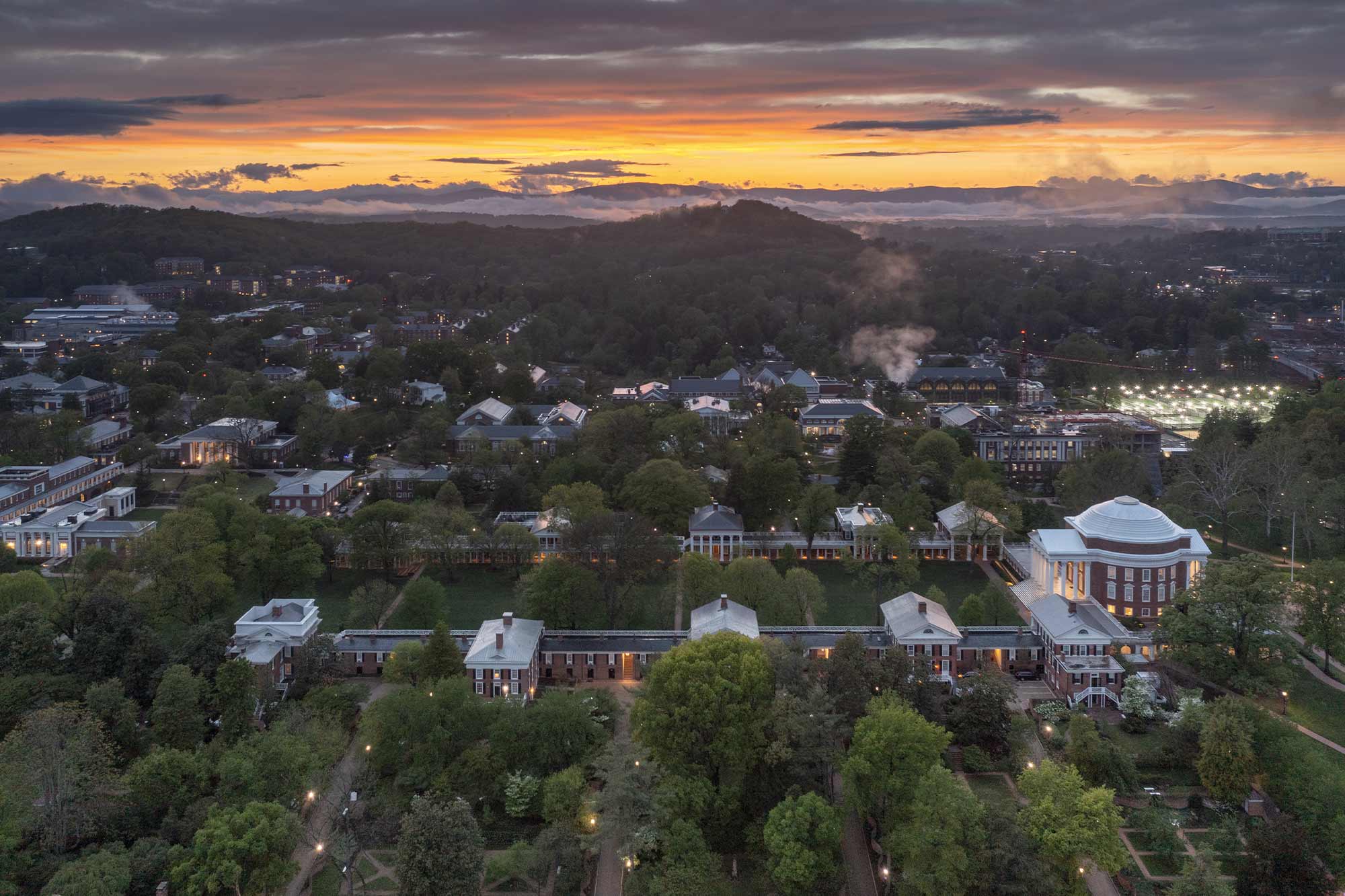America has a gun violence problem, and the University of Virginia is harnessing its teaching, research and public service expertise to help find solutions.
The University’s Gun Violence Solutions Project brings together faculty, staff, students and community members to work on the problem from multiple angles. The project takes a holistic approach, developing and applying solutions at a local level in the Charlottesville area while also exploring law, policy and the cultural factors that shape gun violence.
“Gun violence is a complex problem that affects families and communities across the nation, including ours. Unfortunately, there are no easy answers or a single solution,” UVA President Jim Ryan said. “I’m grateful to have partners from around the University and in the Charlottesville and Albemarle communities who will bring their own perspectives to bear, and will work collaboratively on scalable solutions, research and education. It’s my hope that UVA will be a leader in higher education in efforts to understand and reduce gun violence.”
Local Solutions
The efforts expand the work of the Community Safety Working Group, which released its report in January. The hope is, if UVA, Charlottesville and Albemarle County can develop successful local solutions to reduce gun violence, the ideas could be adapted for similarly sized localities across the nation.
This spring, the University acted on the working group’s recommendation to hire a data scientist at UVA’s Equity Center to support local agencies and partners, including area law enforcement, working to confront gun violence. The data scientist’s work will add to ongoing efforts to engage stakeholders, to develop and share knowledge about local challenges and to analyze data to understand and mitigate gun violence across jurisdictions.
The working group also recommended expanding programs connecting local youth with caring adults. The Equity Center is partnering with the Charlottesville City Council, City of Promise, UVA’s Batten School of Leadership and Public Policy, and the nationwide Presidential Precinct to expand an existing Youth Council program for middle and high school students.
Educators and UVA students will train, mentor and support participants as they identify specific community needs around gun violence on which they can act.
Additionally, local officials and community organizations are working with faculty and students in the School of Law’s State and Local Government Policy Clinic as they develop and execute plans to prevent and mitigate gun violence in Charlottesville and Albemarle. The Batten School will stand up a policy clinic this fall so that Batten students can further support this vitally important work.
Exploring Solutions Through Research and Education
This semester, students in music professor Bonnie Gordon’s Music and Community Engagement course are exploring cultural forces behind gun violence, how creative artists respond to it, stories behind the data, and more.
Community members involved in efforts to address gun violence have spoken with the class, and students have collaborated with local youth.
The most surprising aspect for third-year music and art history major Holly Teti, a Jefferson Scholar who is taking Gordon’s course, has been the sheer number of influences behind community gun violence and the multiple ways to approach the problem.
“I see the possible solutions very differently,” Teti said. “When I think about policy or things that people in power can do to decrease gun violence, I think less about gun legislation alone and more holistically about improving quality of life.”
Amber Townes, a graduate student set to complete her master’s degree in public policy this spring, took professor of public policy Brian Williams’ course, The Wicked Problem of Gun Violence: From Etiology to Action. She found the course relevant because of the issue’s proximity to the UVA community.
“It made the material we were learning feel more immediate and real, motivating us to engage more deeply with the subject matter,” Townes said. “Additionally, having this issue hit close to home emphasized the importance of finding effective solutions and taking action to address gun violence in our own communities.”
As part of a survey course open to all students next year, professor of public policy Eileen Chou will bring a series of guest speakers with varied perspectives on gun violence.
Since last October, the Karsh Institute of Democracy has hosted a faculty working group with members from the College of Arts & Sciences, Batten, and the schools of Law, Medicine and Nursing to support work on gun violence issues, from course development to public meetings to research collaborations aimed at developing interventions.
The group developed a workshop series with UVA and outside experts covering topics such as the evolving legal interpretation of the Second Amendment, behavioral threat assessment and school shootings, violence intervention, and more. The group also provided seed funding for individual student and faculty research.
Sharing Solutions
University officials also are advocating for state legislation prohibiting firearms on Virginia’s public college campuses. The legislation would allow police to make arrests, seize weapons and open criminal investigations. While vetoed this spring, the University is committed to continue promoting similar legislation in future legislative sessions.
The Gun Violence Solutions Project also supports a journalism fellow, James Burnett, the founding editor and managing director of The Trace, a nonprofit news organization covering gun violence across the United States. The fellowship will allow Burnett’s participation in a range of UVA programming and will facilitate reporting focused on solutions to gun violence, including those that are being tried in smaller localities across the country, like Charlottesville.
A search is also underway for a director of the Gun Violence Solutions Project.








